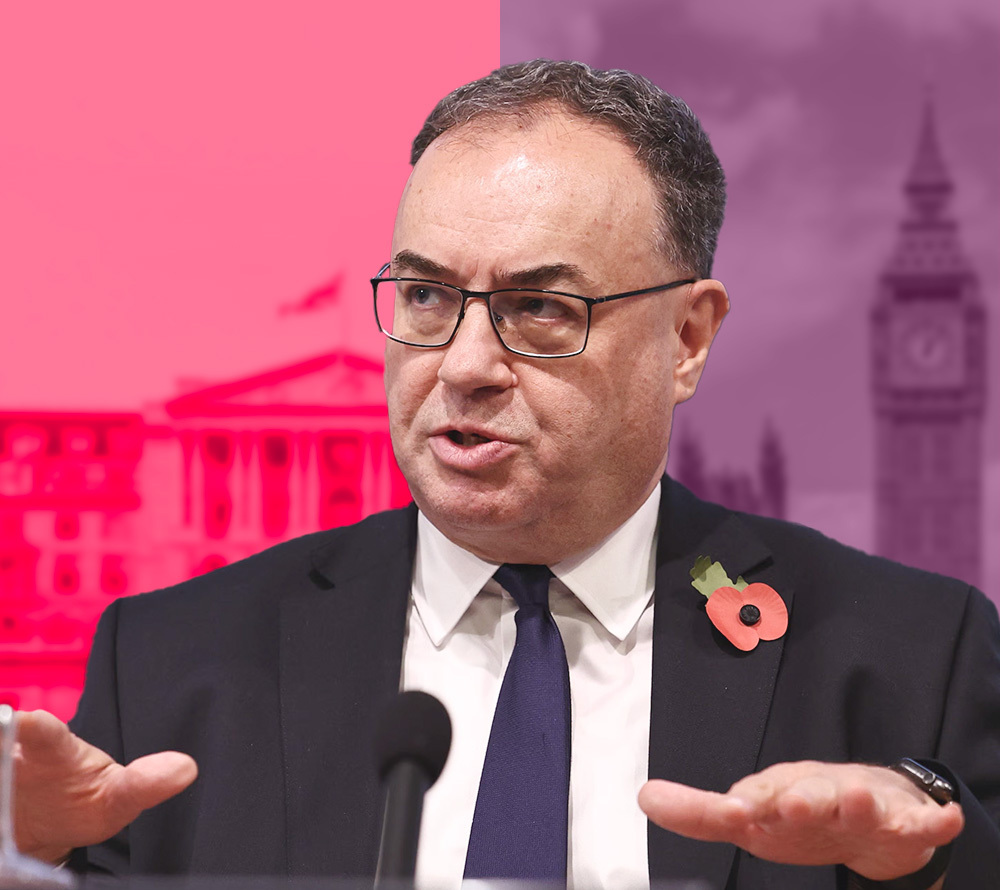By Moneyfarm Chief Investment Officer Richard Flax
This week the Bank of England has come in for some criticism from politicians. We wanted to dig into this a bit more.
There are a few issues to discuss. First, as we know, inflation has been well above target for some time and so the central bank has “failed” in its mandate. Second, more esoterically, the Bank of England is generating losses. At various points it has been buying bonds – most notably during COVID – to inject liquidity into the economy. It generally bought those bonds at low yields (high prices). It is now selling those bonds at lower prices. The Bank of England and Treasury had agreed back in 2021 that the Treasury would cover any losses and that will likely show up in the fiscal accounts. Finally, there’s the question of Central Bank independence. The Bank of England currently makes decisions about interest rates independently of the government. That’s been the case since 1998. Some politicians would like to bring the Bank of England and monetary policy back under government control.
On the first point, inflation has been above target in the UK, Europe and the US. It’s less clear how much responsibility rests with the Central Banks. On the one hand, there were clearly supply shocks – related to COVID and the Russian invasion of Ukraine. Monetary policy can’t do much about that. But it’s probably also fair to argue, with the benefit of hindsight, that Central Banks kept monetary policy too loose for too long in the wake of the pandemic and that probably exacerbated the pick-up in inflation.
On the second point, the Bank of England wasn’t alone in buying high-priced bonds – the ECB and the US Federal Reserve did the same. All three face the same problem. The Bank of England is unusual in that it’s actively selling those bonds now in the market. The Federal Reserve, for instance, is simply letting those bonds mature and not reinvesting the proceeds into new bonds. Both Central Banks are shrinking their balance sheets, but the Bank of England is doing it faster. Is there a good reason for doing that? Central bankers would argue that shrinking their balance sheet allows them to get ready for the next potential crisis sooner. In the case of the UK, it comes at the cost of a higher short-term deficit in the UK as the Treasury funds any losses (it also benefited from gains remitted from the Bank of England in prior periods). That might not be a concern for the Bank of England, but it doesn’t make life easier for the Treasury.
And that comes to the third issue – Central Bank independence. Central bankers are generally concerned with price stability (usually defined as inflation of around 2%). Some have a mandate to consider employment as well. In theory, they shouldn’t be concerned about politics.
We’d argue that independence makes a central banker’s job easier. Consider a (not very) hypothetical situation. Inflation is high but drifting down, the economy is weak, there’s an election coming up, and the government is well behind in the polls. The politically expedient thing to do might be to cut rates and try to boost growth. There’s a case for it – inflation is drifting lower, and the economy is weak – but there’s a real risk that inflation could re-accelerate. But, if they might be out of government in six months, would the politically dependent central banker really care? They might, if they were classically educated, quote St Augustine, “Lord make me pure, but not yet” and just go for it.
What would the consequences of removing Central Bank independence be? We’d expect investors to be concerned that the “new” central bank would tolerate higher inflation. That should mean investors assume higher inflation going forward and demand higher bond yields to compensate for that risk.
Where does this get us? Given the inflation challenges over the past couple of years, we think it’s fair to evaluate how well the Bank of England has done with its policy choices and how it could have done better. It’s also reasonable to ask why the Bank of England is following a more active path to shrinking its balance sheet. It’s not yet clear to us that there’s a real monetary policy benefit. But those issues don’t seem relevant to the question of Central Bank independence. We think that the costs of changing are real and potentially large. We don’t see clear benefits to politicising monetary policy any further.
Richard Flax: Richard is the Chief Investment Officer at Moneyfarm. He joined the company in 2016. He is responsible for all aspects of portfolio management and portfolio construction. Prior to joining Moneyfarm, Richard worked in London as an equity analyst and portfolio manager at PIMCO and Goldman Sachs Asset Management, and as a fixed-income analyst at Fleming Asset Management. Richard began his career in finance in the mid-1990s in the global economics team at Morgan Stanley in New York. He has a BA from Cambridge University in History, an MA from Johns Hopkins University in International Relations and Economics, and an MBA from Columbia University Graduate School of Business. He is a CFA charterholder.
*As with all investing, financial instruments involve inherent risks, including loss of capital, market fluctuations and liquidity risk. Past performance is no guarantee of future results. It is important to consider your risk tolerance and investment objectives before proceeding.





